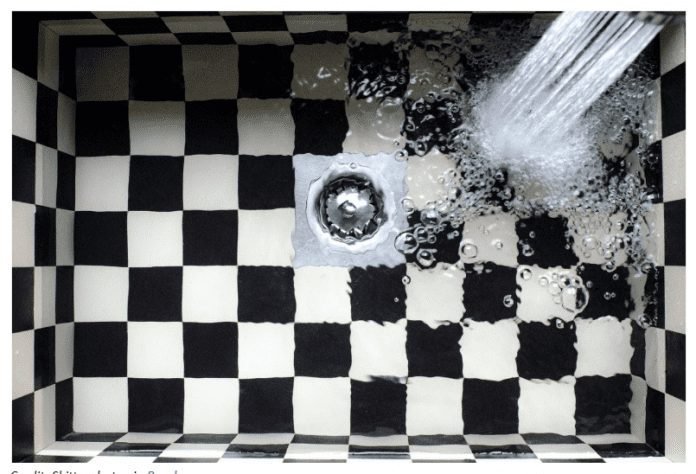Last Updated on March 19, 2024 by Ali Hamza
You fill up the kitchen sink with soapy water to wash your dishes. You scrub your pots, pans, plates and bowls until they’re sparkling, and then you pull the plug to let that dirty water go down the drain. The water goes down at a snail’s pace. A few minutes later, you notice that the sink still isn’t empty.
A clog is likely making your drain sluggish and slow. What can you do about it?
Table of Contents
Skip the Drain Cleaner:
Whatever you do, don’t run out to grab a bottle of drain cleaner at the store. Liquid drain cleaners are harmful and often ineffective. They let off hazardous fumes that you shouldn’t breathe in. They contain caustic chemicals that can damage your drain. And they might not even get the job done! The cleaner might just push the clog further down the drain instead of eliminating it. You’re better off leaving the container on the store’s shelf.
Use Hot Water:
What can you use instead of a liquid drain cleaner? Boil a kettle and then pour the steaming water slowly and carefully into the drain. This can melt away stubborn sink clogs. Do this several times until the water drains like normal.
Choose a Natural Cleaner:
You can also pick up eco-friendly drain cleaners that use enzymes and bacteria to tackle stubborn drain clogs. If you want to find a drain cleaner that won’t damage your pipes or let off hazardous fumes, this could be the green solution for you.
Use a Plunger:
Another simple solution is to grab a plunger to dislodge the clog inside of your drain. Make sure that you use a sink plunger — not a toilet plunger — to do the job.
Call a Plumber:
What if you’ve tried these options, and your sink is still draining slowly? What if it’s so clogged that the water won’t go down at all? Your next step should be to call in a professional to help you.
Don’t skip the professional plumbing service because of the costs. This isn’t something that you should ignore. If you don’t have the savings to solve this urgent problem, you can always put the charge onto your credit card or apply for a personal loan. Click the link to figure out how to find loans near me so that you can discover all of the available options in your home state. You just might be able to borrow enough funds to cover the plumber’s fees once they’ve fixed your sink.
Some plumbing companies will also offer payment programs for clients, which lets you cover the costs of services in smaller installments over a long period of time. Ask your plumber whether they offer something like this to their clients that are a little strapped for cash.
How Do You Stop Your Drain from Getting Slow?
Your kitchen drain is likely clogged from food products that you’ve washed down there. If you want to keep it clear and clog-free, you should use a drain catcher to collect all of the food scraps that you don’t want to come down with your dishwater.
There are also certain items that you should never put down the drain, regardless of a drain catcher. Butter, bacon grease and flour are just some of the terrible culprits that could give your kitchen sink trouble.
Don’t panic when your kitchen sink is a little slow to drain. These tips will help you fix it and get it back to normal.
Read More: The Difference between Professional Drain Cleaning and home Remedy Drain Cleaning



























